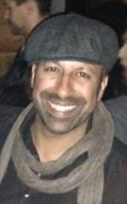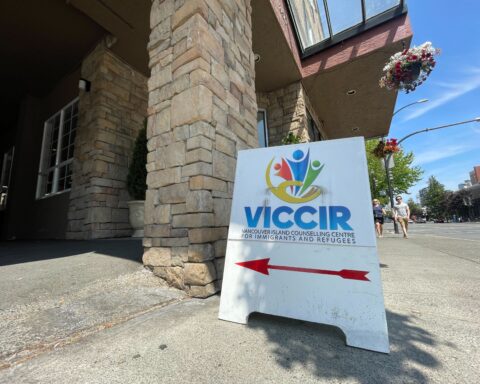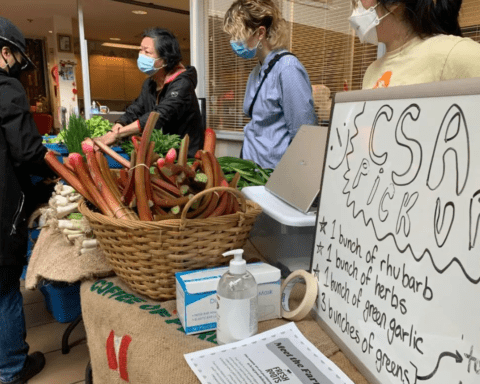It was inevitable the success of Trumpolitics would generate imitators. Stephen Harper dabbled with its tactics in the last federal election by pandering to the baser views of the so-called ‘angry white male’. It comes as a surprise, however, the next piper to try charming this cobra is Ujjal Dosanjh.
The former premier of BC, protector of gay rights, health care, and multiculturalism, recently wrote a lengthy blog post bemoaning political correctness as having gagged white men from saying what they really think. White men who have framed Canada’s political narrative since Confederation, have apparently become excluded from it, somehow finding themselves now at the back of the bus.
Overnight, Dosanjh has become Canada’s Bobby Jindal, the new champion of the far right, quite an act of re-invention for a man who started out on the far left of the political spectrum.
Not surprisingly, Dosanjh’s call found hearty praise from the closeted hordes who took to the comments sections of various online newspaper forums.
The white male commenters vented their frustrations at ‘Multicultism’, immigrants, Muslims, Syrian refugees, and basically anyone who didn’t fit in with the world as seen by ‘old stock’ Canadians. Their antidotes to Canada’s woes were predictable: curtail immigration, seal the border to everyone except Europeans, and renew Judeo Christian liturgical practices.
Now they were venting furiously about how their lifetime membership to the exclusive club of white privilege had apparently eroded in value.
These were the white men Dosanjh had referenced in his post as having ‘been shamed into submission’ by political correctness. Now they were venting furiously about how their lifetime membership to the exclusive club of white privilege had apparently eroded in value.
‘The white man is not disenfranchised’
While Dosanjh’s intention may have been to stir dialogue on Canadian identity, and culture, his approach is fundamentally divisive. He is pandering to one group’s fanciful list of grievances. His apocalyptic vision of white men being overrun by political correctness is built on a number of glaring fallacies.
The first is the most obvious: The white man is not disenfranchised.
Dosanjh’s pitch for amplifying the voices of the privileged is like advocating another tax cut for the one-percent.
To be voiceless is to be a First Nation’s child growing up in a broken home on an isolated reserve without running water. The opposite, more likely than not, is to be a white man.
At Apple, for example, the world’s largest company, white men hold over 70 per cent of senior management positions When compared to other companies and across industry, this is not an anomaly.
When noteworthy decisions are made in Canada, on any number of issues from monetary policy to environmental regulation to First Nations relations, and so forth, they are made by government officials, the majority of whom tend to be white.
These wider decisions indelibly impact our sense of national culture and identity, which Dosanjh claims excludes input from white men.
Dosanjh’s pitch for amplifying the voices of the privileged is like advocating another tax cut for the one-percent.
Political correctness a scapegoat
The second flaw in Dosanjh’s arguments is that white men disproportionately suffer from political correctness, its tight ribbing suffocating only them from speaking on many issues.
What he fails to note is that this same corset of censorship applies equally to everyone, regardless of race.
What he fails to note is that this same corset of censorship applies equally to everyone, regardless of race and ironically, it just as often benefits white men as it harnesses them.
Contrary to Dosanjh’s claim of white men being passive victims of the PC police, they are just as likely to be PC enforcers when it serves their vested interests.
A perfect case in point is the stagnant discussion around Vancouver’s skyrocketing property prices, which Dosanjh alludes to his post. When UBC professor Andy Yan (yes he is Chinese) published his study on property prices in Vancouver and found that 70 per cent of sales in 2014 of detached homes over $3-million in Vancouver went to Chinese buyers, the response from leading (white) politicians, developers, and decision makers was that the study was invoking racism.
Mayor Gregor Robertson wasn’t grateful that finally there was real data on the house market. Instead he resorted to political correctness to obfuscate the issue,“This can’t be about race, it can’t be about dividing people,” said the mayor. “It needs to get to the core issue about addressing affordability and making sure it’s fair.”
The housing issue in Vancouver is about money being earned offshore which has in turn created unfair market conditions for people who live, work and earn in the Lower Mainland. Empty houses and unattainable prices do not a city make – and that affects everyone regardless of your colour.
It’s a class issue, full stop. Political correctness is a convenient scapegoat here.
Canadians should not be trapped in skin colour
The most flagrant shortcoming in Dosanjh’s arguments is that he wants new Canadians to embrace a common set of national values and a national identity but yet he insists on first dividing us into our separate races, hence his rallying call to the white man.
Dosanjh’s view of Canadians as being different coloured lego blocks is regressive and a time warp into the colonial era of the past century. The idea of defining your identity by the quantity of melanin in your skin is as knuckle-scraping as the denial of climate change.
By dividing us into camps of white, yellow, red, brown, and black … means we will always be stuck in these very silos that Dosanjh claims to loathe.
As Canadians, we all have a stake in issues such the choice of language for strata council meetings, the fine balance between accepting refugees and security, and immigration strategy. But an honest discussion of these issues is a colourless discussion.
By dividing us into camps of white, yellow, red, brown, and black so that we all are ‘represented’ at the table means we will always be stuck in these very silos that Dosanjh claims to loathe. This country is moving forward from the past century and we are finally getting beyond race as attested by Prime Minister Justin Trudeau’s cabinet postings. It is misguided for Dosanjh to re-invoke a racial paradigm and think it is a step in the right direction.
Justin Trudeau commented in a recent New York Times Magazine interview that Canada is a post-national state without a core identity and a mainstream. This includes the privilege of not being trapped in your skin – it is one of the best parts of being a Canadian, regardless if you are white, brown, or even tangerine coloured like Donald Trump. This is what it means to be post-national and why most Canadians choose this course.
Fifteen years ago Ujjal Dosanjh was a politician who as an immigrant rose up to become premier of British Columbia. It was historic because he was a visible minority.
Today, however, it is more impressive that Ujjal Dosanjh is no longer identified as a brown politician by the majority of the population, but rather as just another politician.
But he still is a politician at heart, having re-invented himself from an NDP multiculturalism minister to a Liberal cabinet minister and now to the champion of the far right. Having adorned so many party colours, it is predictable, though tragic, that Dosanjh is fanning the dying racial embers of this country to win over a new audience.
Jagdeesh Mann is the Executive Editor of the South Asian Post, Asian Pacific Post and Filipino Post.
An abridged version of this piece was first published in The Globe and Mail. It was re-published here in partnership with the South Asian Post.
Jagagdeesh Mann is a Vancouver-based entrepreneur and a founding partner of the Asian Pacific Post, a Jack Webster Award–winning publication. His work has been published by the Toronto Star, the Georgia Straight, the Globe and Mail, the CBC, and Canadaland.




